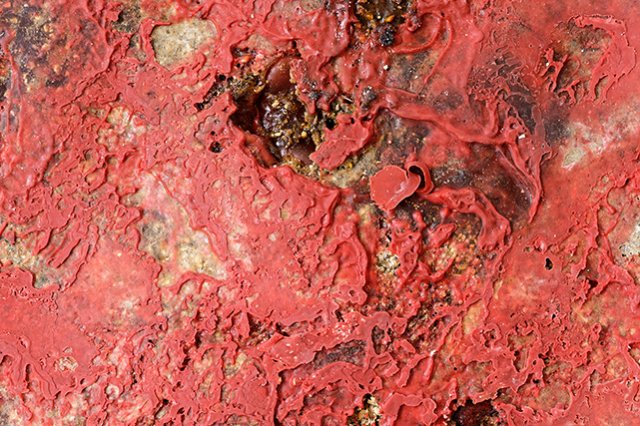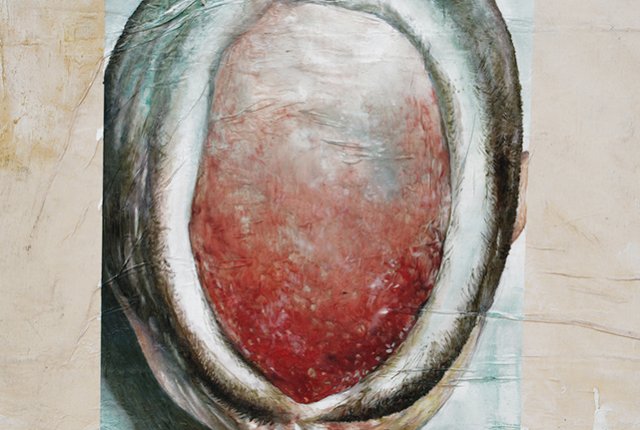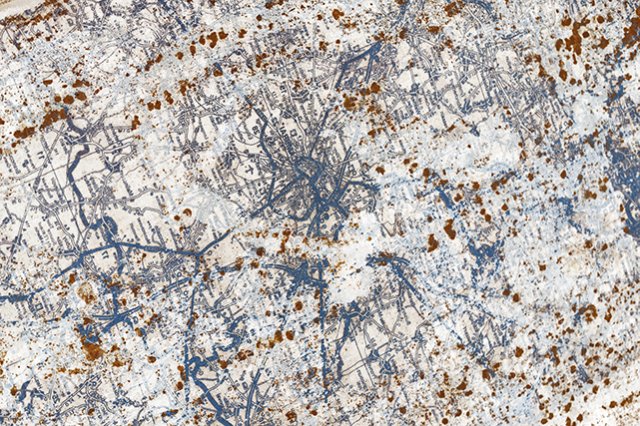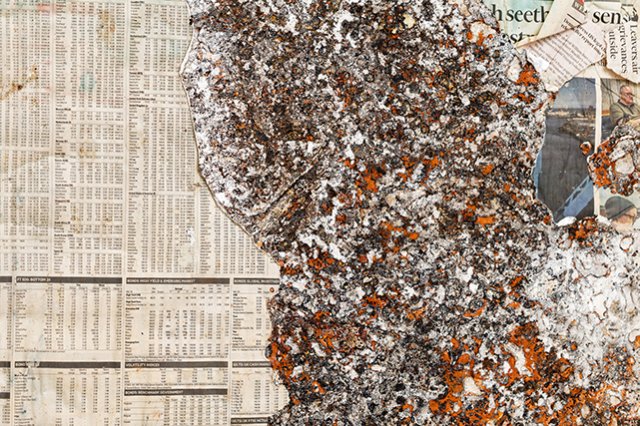"Les midideux" : 4 short talks
IN NOVEMBER / DECEMBER, FROM 12 TO 2 P.M.
From November 7 to December 13, Bétonsalon – Center for Art and Research, is planning a series of 30 minute mini-conferences around Mandy El-Sayegh’s exhibition, White Grounds. These lectures will be given by researchers from various disciplines: Jean-Claude Serge Lévy (physics), Jean-François Ternay (science and media), Elisabeth Essaïan (cartography), and Claudia Girola (anthropology).
The “midideux” will be introduced by Guillaume Meigneux, Assistant Professor in Plastic and Visual Arts, who will present the issues related to White Grounds. Based on one of the themes approached by the artist, the materials she used, or one of her key-concepts, the “midideux” will attempt to establish correlative links between art, science and anthropology, in a transdisciplinary way.
THURSDAY, NOVEMBER 7, 2019, AT 12 P.M.

- Details from Estimated at 296, Mandy El-Sayegh, latex and mixed media tiles – 2019. Image credit © Aurélien Mole.
Jean-Claude Serge Lévy, "Complexity and disorder"
The occupation of space and the principle of optimal filling of a volume (packing and covering) are powerful geometric themes. The symmetry of the Platonic solids, the motifs of Islamic art, as well as crystallography, attest to this theory. The long-distance correlations of this decoration suggest an imbalance, a dynamic.
Jean-Claude Serge Lévy is a Professor Emeritus of Physics at the Quantum Materials and Phenomena Laboratory at the Paris Diderot University. Specialist in Solid-State Physics and Magnetism, he has been hosting the "Complexity-disorder" Days for several years.
THURSDAY, NOVEMBER 28, 2019, AT 12 P.M.

- Details from White Grounds 12 (artefacta), Mandy El-Sayegh, Oil on linen work with various materials – 2019. Image credit © Aurélien Mole.
Jean-François Ternay, "Circulation of scientific images of the body: appropriation and misappropriation"
Scientific and medical visualizations of the body, such as that of the brain or the human embryo, can circulate from the hospital to the anatomy museum, be reused on the Internet or in a magazine, and then appear in a TV documentary. Even today, the tradition of anatomical representation that circulates from medicine to art continues. In that way, because so-called "scientific" images are often connoted "truer" than others, they sometimes try to make us forget that, as images, they are always the result of a construction.
Jean-François Ternay is a lecturer at the Paris Diderot University, and a director of scientific films.
FRIDAY, DECEMBER 13, 2019, FROM 12 TO 1.30 P.M.

- Details from Estimated at 296, Mandy El-Sayegh, latex and mixed media tiles – 2019. Image credit © Aurélien Mole.
Elisabeth Essaïan, "Plans and maps of architects: making the void speak"
When questioning the forms and modes of representation of the void in plans and maps produced by architects, the purpose will be to see the extent to which the differences and changes (over time and within the cultural and geographical space), in the modes and contents of these codified representations, provide information on the view its authors have of the empty spaces, and the practices that take place in those spaces.
Élisabeth Essaïan holds a doctorate in architecture, is a professor-researcher at the ENSA Paris-Belleville/IPRAUS-UMR AUSser Laboratory, and also a former resident at Villa Médicis.

- Details from Estimated at 296, Mandy El-Sayegh, latex and mixed media tiles – 2019. Image credit © Aurélien Mole.
Claudia Girola, "The traces of a homeless life"
The precarious and exposed situation in which homeless people are is, in itself, a complex experience that places them in a process of self-assertion "despite everything", that questions this dominant image of the unattached individual, literally at the edges of the world, imposed by the dominant representation. This will aim to bring homeless people closer to us. May their memories, their traces in the city space, their active present and their often-delayed future, illuminate, even in a discontinuous way, the areas that connect us.
Claudia Girola is the pedagogical director of the Master 1 Research in Sociology and Political Philosophy and a member of the Scientific Council and the Council of the Social Sciences department at the Paris Diderot University.
Share